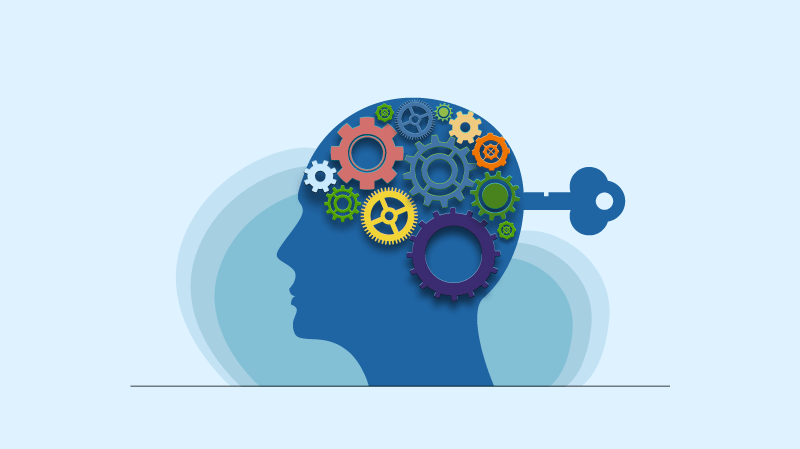If you’re looking for a BDD therapist near you, then you’ve come to the right place! In this blog post, we will provide some tips and advice on how to find the best therapist for your needs. We will also discuss the benefits of seeking treatment from a qualified professional. So, if you’re ready to take the next step in your journey to recovery, keep reading.
Contents
What Is BDD?
 BDD is a mental health disorder that is characterized by an extreme preoccupation with one’s appearance. People with BDD often fixate on a perceived flaw in their appearance and can spend hours obsessing over it. They may also engage in compulsive behaviors such as skin picking, hair pulling, or excessive grooming in an attempt to hide or fix the flaw.
BDD is a mental health disorder that is characterized by an extreme preoccupation with one’s appearance. People with BDD often fixate on a perceived flaw in their appearance and can spend hours obsessing over it. They may also engage in compulsive behaviors such as skin picking, hair pulling, or excessive grooming in an attempt to hide or fix the flaw.
BDD can be a very debilitating disorder that can interfere with work, school, and personal relationships. If you think you might have BDD, it’s important to seek professional help. A therapist who specializes in treating BDD can help you manage your symptoms and improve your quality of life.
Who Is BDD Therapist?
 A BDD therapist is a mental health professional who specializes in the treatment of body dysmorphic disorder (BDD). BDD is a condition characterized by a preoccupation with one or more perceived defects or flaws in appearance that are not observable to others. Those affected by BDD may engage in compulsive behaviors such as excessive grooming, mirror checking, and skin picking. BDD can lead to significant distress and impairment in functioning.
A BDD therapist is a mental health professional who specializes in the treatment of body dysmorphic disorder (BDD). BDD is a condition characterized by a preoccupation with one or more perceived defects or flaws in appearance that are not observable to others. Those affected by BDD may engage in compulsive behaviors such as excessive grooming, mirror checking, and skin picking. BDD can lead to significant distress and impairment in functioning.
There are several ways to find a BDD therapist. One option is to ask your primary care physician for a referral. You can also search online directories such as the American Academy of Dermatology’s website or the International OCD Foundation’s provider directory. If you have insurance, you may want to call your insurance company to get a list of in-network providers.
When looking for a BDD therapist, it is important to find someone who has experience treating this condition. Be sure to ask about the therapist’s training and experience in treating BDD. It is also important that you feel comfortable with the therapist and that they make you feel safe and understood.
Types of Treatment Options Used By BDD Therapists

Many types of therapy can be used to help people with BDD. Some of these therapies are:
Cognitive Behavioral Therapy
Cognitive behavioral therapy is one of the most common types of therapy used to treat BDD. This type of therapy helps people to change the way they think about their bodies and themselves. It can also help people to learn how to cope with their BDD more positively. CBT is usually done in weekly sessions with a therapist.
Exposure and Response Prevention Therapy
This type of therapy is also sometimes called ERP therapy. It helps people to slowly expose themselves to the things that trigger their BDD. For example, if someone is afraid of mirrors, they may start by looking at themselves in a mirror for a few seconds each day. They would then increase the amount of time they spend looking in the mirror each day. ERP can help people to learn how to control their anxiety and fear about their bodies.
Acceptance and Commitment Therapy
ACT Therapy is a type of therapy that helps people to accept their BDD and learn to live with it more positively. This type of therapy can help people to understand their thoughts and feelings about their BDD. It can also help people to learn how to take action despite their fears. ACT is usually done in weekly sessions with a therapist.
Psychodynamic Therapy
This type of therapy focuses on helping people to understand the root cause of their BDD. It can help people to explore their early childhood experiences and family history. Psychodynamic therapy can be helpful for some people, but it is not as widely used as other types of therapy for BDD.
Medication
Some people with BDD may also need medication to help them cope with their disorder. Medication can be used along with therapy to help people with BDD. The most common type of medication used to treat BDD is antidepressants. Antidepressants can help to reduce the symptoms of BDD.
Characteristics of BDD Therapists
There are many different characteristics of BDD therapists near me, but there are some common characteristics that you can look for when choosing a therapist. First and foremost, BDD therapists should be compassionate and understanding. They should also be able to provide you with the tools and resources necessary to manage your condition.
Another important characteristic of BDD therapists is that they should be knowledgeable about the latest research on BDD. This means that they should be up-to-date on the latest treatment options and have a good understanding of how the condition affects people.
Finally, BDD therapists should be able to create a safe and supportive environment for you to work through your issues. This includes providing you with confidentiality and respecting your privacy.
How To Find BDD Therapists?

Finding a therapist can be a difficult and daunting task, but it is an important step in managing your BDD. Here are some tips on how to find a therapist who specializes in BDD:
Ask For Reference
One way to find a good therapist is to ask for references from friends, family, or your primary care physician. If you know someone who has seen a therapist before, they may be able to give you some recommendations.
Do Some Research
Another way to find a therapist is to do some research on your own. You can start by looking online for therapists in your area who specialize in BDD. Once you have found a few potential candidates, you can read their bios and reviews to learn more about them.
Schedule A Consultation
Once you have narrowed down your list of potential therapists, the next step is to schedule a consultation with each one. This will allow you to meet the therapist and get a feel for their style and approach.
During the consultation, be sure to ask about their experience treating BDD, what methods they use, and how they think you can benefit from therapy. After meeting with each therapist, you should have a good idea of which one is right for you.
Take your time in finding a therapist who is a good fit for you and your needs. With the right therapist, you will be on your way to managing your BDD and living a happier, more fulfilling life.
Finding a therapist that specializes in Body Dysmorphic Disorder can seem like a daunting task, but it is an important step in managing your BDD.
Tips To Keep Ind Mind While Consulting BDD Therapist

There are many tips to keep in mind while consulting a BDD therapist. Here are some of the most important ones:
- First and foremost, be honest with your therapist. BDD can be a very sensitive topic, so it is important to feel comfortable discussing it with your therapist. There may be many aspects of your appearance that you are unhappy with, but try to focus on the one or two that are causing the most distress.
- It is also important to be patient. BDD can be a difficult disorder to treat, so it may take some time to see results. However, if you feel like you are not making progress after a few sessions, don’t hesitate to speak to your therapist about it.
- Be open to trying different types of therapy. What works for one person may not work for another, so it is important to be open to exploring different treatment options. There are also many different types of BDD, so your therapist may need to try a few different approaches before finding the right one for you.
- Remember that you are not alone. BDD can be a very isolating disorder, but there are many people out there who understand what you are going through. There are also many resources available to help you cope with BDD and its symptoms. If you ever feel like you are struggling, reach out for help.
- Don’t hesitate to ask questions. If you don’t understand something, or if you want more information about a certain topic, don’t hesitate to ask your therapist. It may also be helpful to do some research on your own.
- Trust your therapist. BDD can be a very complex disorder, and it is important to find a therapist that you feel comfortable with. Trust is essential in any therapeutic relationship, so if you don’t feel like you can trust your therapist, it may be time to look for someone else.
- Lastly, trust your instincts. If you feel like you are not making progress, or if you are not comfortable with your therapist, don’t hesitate to seek out a second opinion. BDD is a complex disorder, and it is important to find a therapist that you feel understands your needs. If you ever feel like you are not being heard, or if you are not getting the help you need, don’t be afraid to speak up.
These are some of the tips to keep in mind while consulting a BDD therapist. If you or someone you know is struggling with BDD, reach out for help. There are many resources available to help you cope with this disorder. You are not alone.
Benefits of Consulting BDD Therapist

There are many benefits of consulting a BDD therapist. Some of these are:
Helps You To Understand Yourself
One of the main benefits of consulting a BDD therapist is that they can help you to understand yourself. This is because they will be able to provide you with insight into your thoughts and feelings. This can be extremely helpful if you are struggling to understand why you are thinking or feeling certain things.
Helps You To Identify Your Triggers
Another benefit of consulting a BDD therapist is that they can help you to identify your triggers. This is important as it can help you to avoid situations that may cause you to experience anxiety or distress.
Helps You To Challenge Your Negative Thoughts
A third benefit of consulting a BDD therapist is that they can help you to challenge your negative thoughts. This is important as it can allow you to start to see yourself in a more positive light.
Helps You To Develop Coping Strategies
A fourth benefit of consulting a BDD therapist is that they can help you to develop coping strategies. This is important as it can help you to deal with your anxiety in a more constructive way.
If you are considering consulting a BDD therapist, then these are just some of the benefits that you may experience. It is important to remember that everyone will react differently to therapy and so not all of these benefits will be experienced by everyone.
Conclusion
BDD is a serious disorder that can have a profound impact on your life. If you think you may be suffering from BDD, it’s important to seek professional help. A qualified therapist can provide the support and guidance you need to manage your symptoms and live a full, healthy life.
If you’re not sure where to start, several online directories can help you find a therapist in your area. Finding a therapist who specializes in BDD is an important first step in getting the treatment you need.
With the right help, you can overcome BDD and live a happy, fulfilling life. Don’t hesitate to reach out for assistance if you’re struggling with this disorder. Help is available, and there is hope for recovery. If you have any questions or comments, please feel free to contact us and visit us.
Hope this article was of help to you! If you are suffering from trichotillomania and OCD, you may seek help from Therapy Mantra. We have a team of highly trained and experienced therapists who can provide you with the tools and skills necessary for overcoming trichotillomania and OCD. Contact us today to schedule an online therapy or download our free OCD treatment app on Android or iOS for more information.


